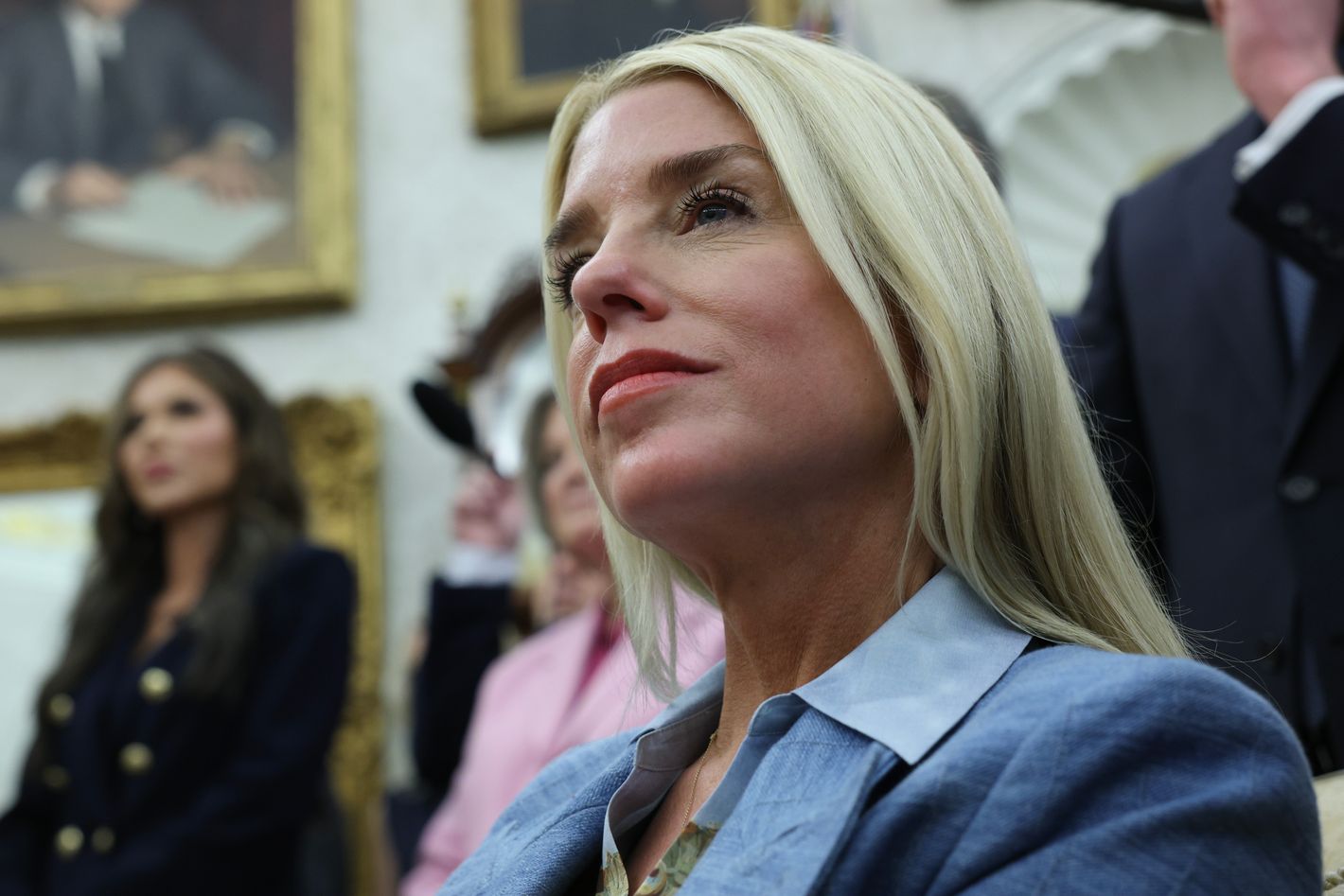Photo: Win McNamee/Getty Images
Much has been written about the speed and presidential authoritarianism that has characterized the early days of the second Trump administration. But there’s another hallmark that’s becoming more obvious each day: a commitment, almost an addiction, to overkill in how Team Trump goes about promoting its policies and punishing its perceived enemies. Its operational slogan could be: “Anything worth doing is worth overdoing.” Among the most recent examples have been a broad-based assault on the autonomy of private universities in the guise of combating campus antisemitism and the bizarre war on the state of Maine for its refusal to ban transgender athletes. In both cases the administration is taking and threatening actions far out of proportion to the alleged offenses being addressed.
The list of demands just rejected by Harvard University illustrates the hubristic habits of Trump 2.0, which appear to have shocked the editorial board of The Wall Street Journal:
The Trump Administration on Monday froze $2.2 billion in funds to Harvard after the university refused to surrender to its sweeping demands. Few Americans will shed tears for the Cambridge crowd, but there are good reasons to oppose this unprecedented attempt by government to micromanage a private university …
Harvard failed to protect Jewish students during anti-Israel protests. But the university agreed to strengthen protections for Jewish students in a legal settlement with Students Against Antisemitism, which praised it for “implementing effective long-term changes.”
The Trump Administration nonetheless demanded last week that Harvard accede to what is effectively a federal receivership under threat of losing $9 billion.
As the Journal notes, the overreach isn’t just demands from the shadowy Joint Task Force to Combat Anti-Semitism that Harvard and other universities dismantle DEI programs and policies, which really aren’t any business of the federal government. The administration “runs off the legal rails by ordering Harvard to reduce ‘governance bloat, duplication, or decentralization.’ It also orders the school to review ‘all existing and prospective faculty … for plagiarism’ and ensure ‘viewpoint diversity’ in ‘each department, field, or teaching unit.’” None of this has anything to do with campus antisemitism. And when Harvard rejected these demands, the president himself raised the stakes by threatening to seek revocation of the school’s tax-exempt status.
Similarly, the war on Maine started out as an egregious overreach by the federal government that keeps getting more and more out of control. The “problem” being addressed here is tiny, as Maine Public Radio observes: “The Maine Principals’ Association has said there are only two transgender athletes competing in girls’ high-school sports statewide this year out of tens of thousands of participants.” Yet one anecdotal report from Maine led the president of the United States to issue a sweeping executive order banning transgender athletes under the dubious theory that their participation in sports constitutes discrimination against women.
Subsequently, the administration has sought to freeze or terminate a wide array of federal grants, including school nutrition assistance, and in another expansion of the battleground, corrections grants (on grounds that Maine had placed a transgender person in a women’s prison). Most recently, Attorney General Pam Bondi has announced a civil lawsuit against Maine to force its submission. The whole dispute is becoming a comprehensive collision between Washington and Augusta, and between Democratic governor Janet Mills and the entire Trump administration. De-escalation or even negotiation do not appear to be acceptable strategies for the people running this country.
Harvard and Maine are just the most recent targets of administration overkill. The DOGE assault on the “deep state” has been characterized from the very beginning by actions intended to inflict maximum pain, fear, and chaos on federal employees and contractors, often on vague pretexts and with very limited payoffs in terms of the budget savings that supposedly justify the entire exercise. The particularly aggressive and systemic destruction of USAID is a good example of DOGE’s determination to go far beyond efficiency measures into wholesale demolition of congressionally authorized agencies. Similarly, while the plan to deport undocumented immigrants is barely underway and is already underperforming its announced benchmarks, it’s being conducted in as controversial a manner as possible. Must ICE really conduct itself like a budding American gestapo, snatching people off the streets almost randomly? Is the rendition of deportees to a notoriously brutal Salvadoran prison actually necessary?
On almost every front, the Trump administration is accompanying its turbulent actions with apocalyptic rhetoric. Every policy initiative, however banal or half-baked, is essential to national survival. Any resistance is inherently unpatriotic, if not actively, consciously evil. It’s as though public life has itself become a vast social-media platform where one excess endlessly feeds on another.
So why is this over-the-top approach to governing the modus operandi of the second Trump administration? It could simply reflect the personality of its narcissist-in-chief and his signature inflation of everything he says and does into the most important moments of everyone’s day. Alternatively, the tendency to commit overkill could be driven by the sense that Trump 2.0 is on borrowed time, with the courts, the markets, public opinion, and midterm voters all threatening to curtail this wild jamboree of vengeance and self-indulgence. It’s even possible that the administration will settle down into a slightly less catastrophic state of mind and earn some political capital in appreciation of a bit more normalcy. But for now, the heat and noise will remain all but unbearable.

